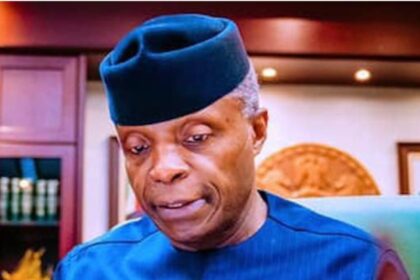The Presidency has disclosed that some deceitful projects were awarded during the administration of former President Goodluck Jonathan.
Many of the projects were said to be merely on paper and no payment was made for their start-up.
The President’s Senior Special Assistant on Media and Publicity, Garba Shehu, in an interview on Express Radio in Kano on Tuesday, noted that some projects, which existed only on paper, were being activated. He cited the Kano-Katsina dual road project as an example of what he called “deceitful and ghost projects now being given life”.
”Kano-Katsina dual highway was awarded three years ago by the last administration. They didn’t pay a kobo for its start-up. President Buhari just paid money for the first tranche of 75 kilometers and work has begun apace.”
Shehu said Nigeria was taking a giant leap in infrastructure development by speeding up ongoing projects and investing heavily in the construction and repair of highways, railways and power generating plants across the country.
The Buhari administration, he said, chose to fast track projects related to infrastructure to pump money into the economy as a way of pulling it out of recession.
Shehu said N750 billion has been released for capital projects in the last five months and that counterpart funds for the take-off of the USD 11 billion Kano-Lagos rail project had been paid.
“Without infrastructure, the country will not witness growth,” he noted.
On the resurgence of militancy and pipeline vandalism in the Niger Delta, Shehu urged militants to maintain peace as the President seeks a permanent solution to the problems that are worrisome to every citizen.
“We must keep national interest above all else and give priority to eschewing violence and destruction,” he said.
The presidential spokesman expressed regrets that despite its good faith in pursuing dialogue with Niger Delta stakeholders, the militant groups had not reciprocated the government’s good gesture in finding peaceful and lasting solution to the crises in the oil producing areas of Nigeria.
“Despite the government’s practical demonstration of goodwill by bringing the parties or stakeholders to the round table, the militant groups have continued to blow up national economic assets.”
According to Shehu, the continued destruction of oil installations, including those repaired, has thrown a spanner in the works, causing enormous hardships on innocent Nigerians on account of declining oil production output and massive losses of revenue, which in turn, badly affect the ability of governments at all levels to meet their basic obligations, including payment of salaries.
He urged Niger Delta leaders at all levels to use their influence to stop the violence and economic sabotage “so that normalcy returns to the region”.




